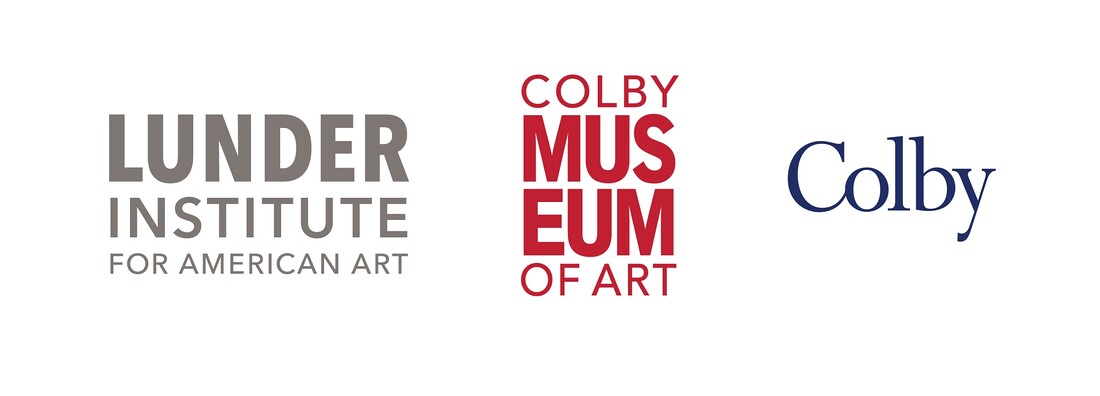5600 Mayflower Hill Dr
04901 Waterville Maine
Hours: Tuesday–Saturday 10am–5pm,
Thursday 10am–9pm
Climate change will be the focus of 2019–2020 exhibitions at the Colby College Museum of Art and programming by the Lunder Institute for American Art.
This coincides with forthcoming Environmental Humanities initiatives at Colby addressing the field’s most pressing topics.
In its 60th year, the Colby College Museum of Art announces an exhibition program dedicated to climate change and environmental perils. In collaboration with the Lunder Institute for American Art, the Colby Museum will advance the College’s commitment to environmental stewardship through wide-ranging exhibitions, convenings, and programs.
On view at the Colby Museum from February 14 through April 26, 2019, Flooded McDonald’s (2008), a video by Copenhagen-based artist collective SUPERFLEX, features a life-size replica of a McDonald’s restaurant filling with water: furniture and food trays float and electrical elements short-circuit as the space is submerged. Created a decade ago, this video forecasts an emerging global reality as weather patterns change and sea levels rise.
The Lunder Institute has named Phong Bui a 2019 Lunder Institute Fellow. An artist, critic, and curator, Bui is founder and artistic director of The Brooklyn Rail, an independent journal devoted to art, culture, and politics. During his Lunder Institute appointment, Bui will organize the exhibition Occupy Colby: Artists Need to Create on the Same Scale that Society Has the Capacity to Destroy, Year 2 on view at the Colby Museum from July 20, 2019, through January 5, 2020, continuing an initiative launched by The Brooklyn Rail in 2017 at Mana Contemporary, Jersey City. Deploying a range of media, artists including Lauren Bon, David Brooks, Mel Chin, Mark Dion, Maya Lin, and Meg Webster respond to manmade and natural surroundings with heightened awareness of planet earth’s fragility. To amplify the themes of Occupy Colby, the Lunder Institute will host conversations between Bui, Occupy Colby artists, and participants in Colby’s Summer Institute in Environmental Humanities.
Colby will host its inaugural Summer Institute in Environmental Humanities in August 2019 to address contemporary issues in environmental humanities through interdisciplinary events, seminars, and workshops. Funded by an Andrew W. Mellon Foundation grant, the institute will augment efforts underway at Colby’s Buck Environment and Climate Change Lab, Bigelow Laboratory for Ocean Sciences, and Environmental Humanities Faculty Seminar to tackle complex climate change issues.
Connecting these dialogues, in October the Colby Museum and the Lunder Institute will co-publish a special edition of The Brooklyn Rail dedicated to climate change. This issue will feature Phong Bui’s conversations with artists, a text by Diana Tuite, the Museum’s Katz Curator of Modern and Contemporary Art, and essays by Colby scholars in the sciences and humanities.
Indigenous environmental values are at the core of Wíwənikan…the beauty we carry open July 20, 2019, through January 12, 2020. Jennifer Neptune, Penobscot basketmaker and beadworker, and Kathleen Mundell, director of Cultural Resources, Inc., will guest-curate an exhibition of contemporary art by Maliseet, Micmac, Passamaquoddy, Penobscot, and Abenaki peoples collectively known as the Wabanaki. This survey of work by First Nations people in what is now Maine and Maritime Canada will feature basketmakers, canoe makers, carvers, painters, and beadworkers. In Penobscot Wíwənikan refers to portage, carrying things over water, but also describes how the artists carry the beauty of their ancestors and culture into the future while grappling with threats to the natural resources on which they rely.
The Museum reexamines the work of James McNeill Whistler with the exhibition River Works: Whistler and the Industrial Thames on view from August 6, 2019, to June 2020, an exploration of aesthetic, historical, and environmental aspects of Whistler’s representations of London’s River Thames. 19th-century debates surrounding the river—as a commercial port, center for industry, source of drinking water, and cultural symbol—mark the emergence of modern environmental politics and natural resource management. Whistler’s depictions will be considered within this Victorian consciousness of the Thames, an understanding of the relationship between cities and their waterways that remains relevant today.



